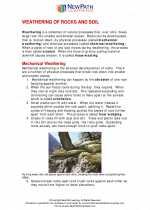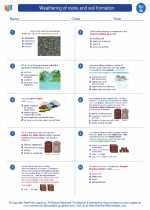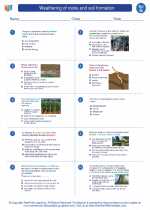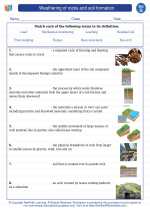What is Bioremediation?
Bioremediation is the use of living organisms to clean up or neutralize pollutants in the environment.
Types of Bioremediation
- Biostimulation: Adding nutrients to stimulate the growth of indigenous microorganisms that can break down contaminants.
- Bioaugmentation: Introducing specialized microorganisms to enhance the breakdown of specific pollutants.
- Phytoremediation: Using plants to remove, degrade, or stabilize contaminants in the soil, water, or air.
Key Players in Bioremediation
- Microorganisms: Bacteria, fungi, and other microorganisms play a crucial role in breaking down contaminants.
- Plants: Certain plants have the ability to absorb and accumulate pollutants from the soil or water.
- Enzymes: Biological catalysts that facilitate the breakdown of contaminants into less harmful substances.
Applications of Bioremediation
Advantages of Bioremediation
- Environmentally Friendly: It minimizes the use of harsh chemicals and mechanical interventions.
- Cost-Effective: Can be more affordable than traditional cleanup methods.
- Sustainable: Harnesses natural processes to restore environmental quality.
Limitations and Challenges
- Effectiveness: The success of bioremediation can depend on various factors such as the type of contaminant, site conditions, and the availability of suitable microorganisms.
- Time: Bioremediation can be a slow process, especially for complex or persistent contaminants.
- Regulatory Approval: Compliance with environmental regulations and obtaining permits can be challenging.
◂Science Worksheets and Study Guides Seventh Grade. Weathering of rocks and soil formation
Study Guide Weathering of rocks and soil formation
Weathering of rocks and soil formation  Activity Lesson
Activity Lesson Weathering of Rocks
Weathering of Rocks  Worksheet/Answer key
Worksheet/Answer key Weathering of rocks and soil formation
Weathering of rocks and soil formation  Worksheet/Answer key
Worksheet/Answer key Weathering of rocks and soil formation
Weathering of rocks and soil formation  Worksheet/Answer key
Worksheet/Answer key Weathering of rocks and soil formation
Weathering of rocks and soil formation  Worksheet/Answer key
Worksheet/Answer key Weathering of rocks and soil formation
Weathering of rocks and soil formation  Vocabulary/Answer key
Vocabulary/Answer key Weathering of rocks and soil formation
Weathering of rocks and soil formation  Vocabulary/Answer key
Vocabulary/Answer key Weathering of rocks and soil formation
Weathering of rocks and soil formation  Vocabulary/Answer key
Vocabulary/Answer key Weathering of rocks and soil formation
Weathering of rocks and soil formation  Vocabulary/Answer key
Vocabulary/Answer key Weathering of rocks and soil formation
Weathering of rocks and soil formation 

 Activity Lesson
Activity Lesson
 Worksheet/Answer key
Worksheet/Answer key
 Worksheet/Answer key
Worksheet/Answer key
 Worksheet/Answer key
Worksheet/Answer key
 Worksheet/Answer key
Worksheet/Answer key
 Vocabulary/Answer key
Vocabulary/Answer key
 Vocabulary/Answer key
Vocabulary/Answer key
 Vocabulary/Answer key
Vocabulary/Answer key
 Vocabulary/Answer key
Vocabulary/Answer key

The resources above cover the following skills:
LIFE SCIENCE
Unity and Diversity
Analyze and interpret data for patterns of change in anatomical structures of organisms using the fossil record and the chronological order of fossil appearance in rock layers.